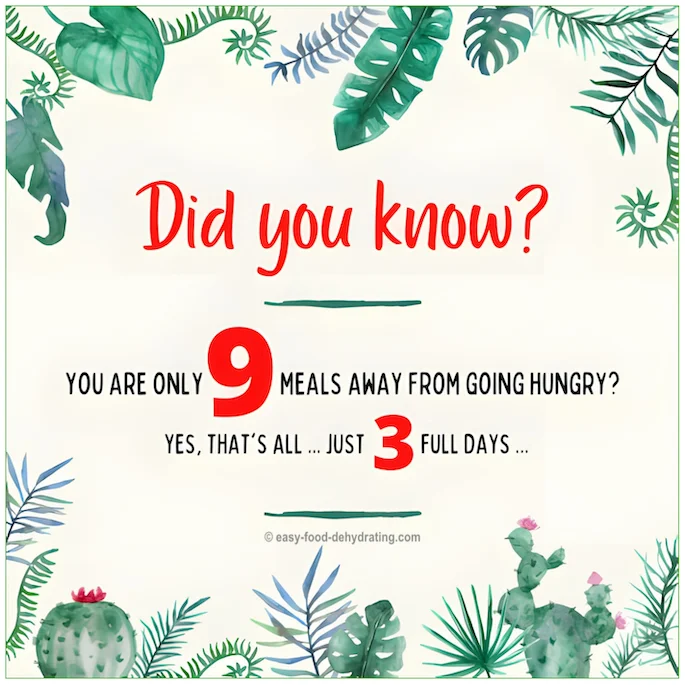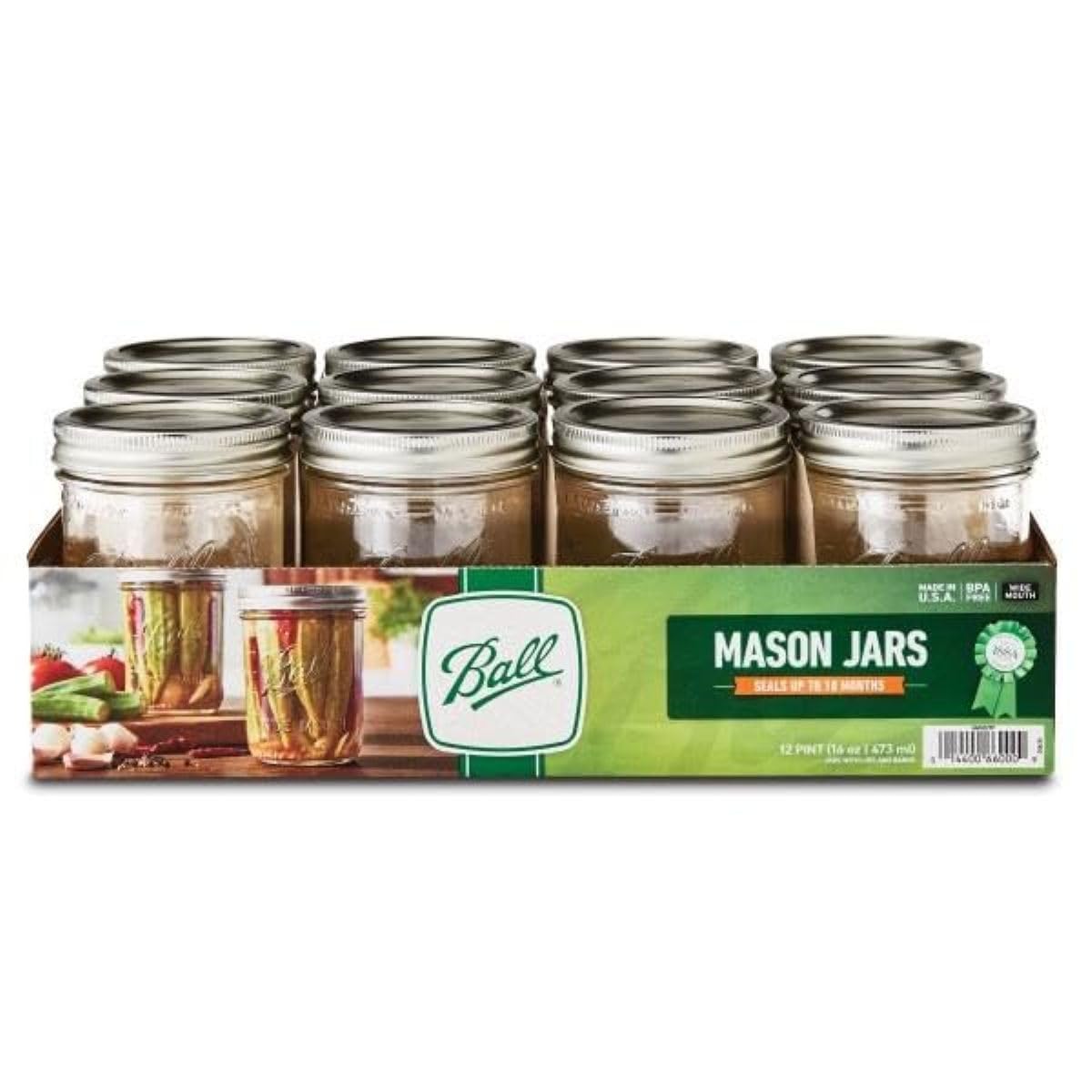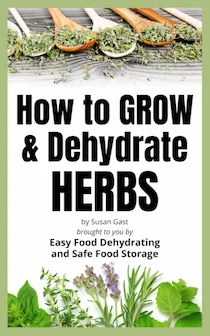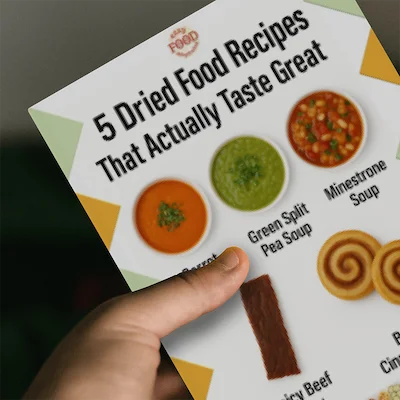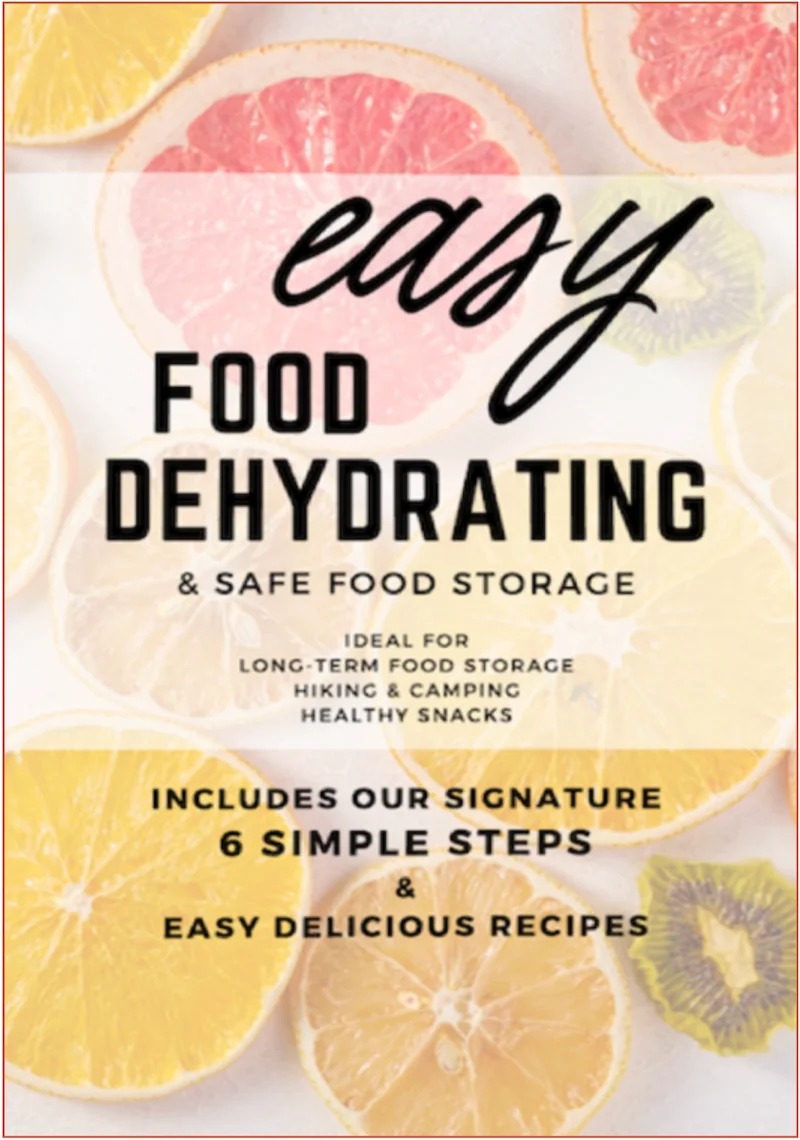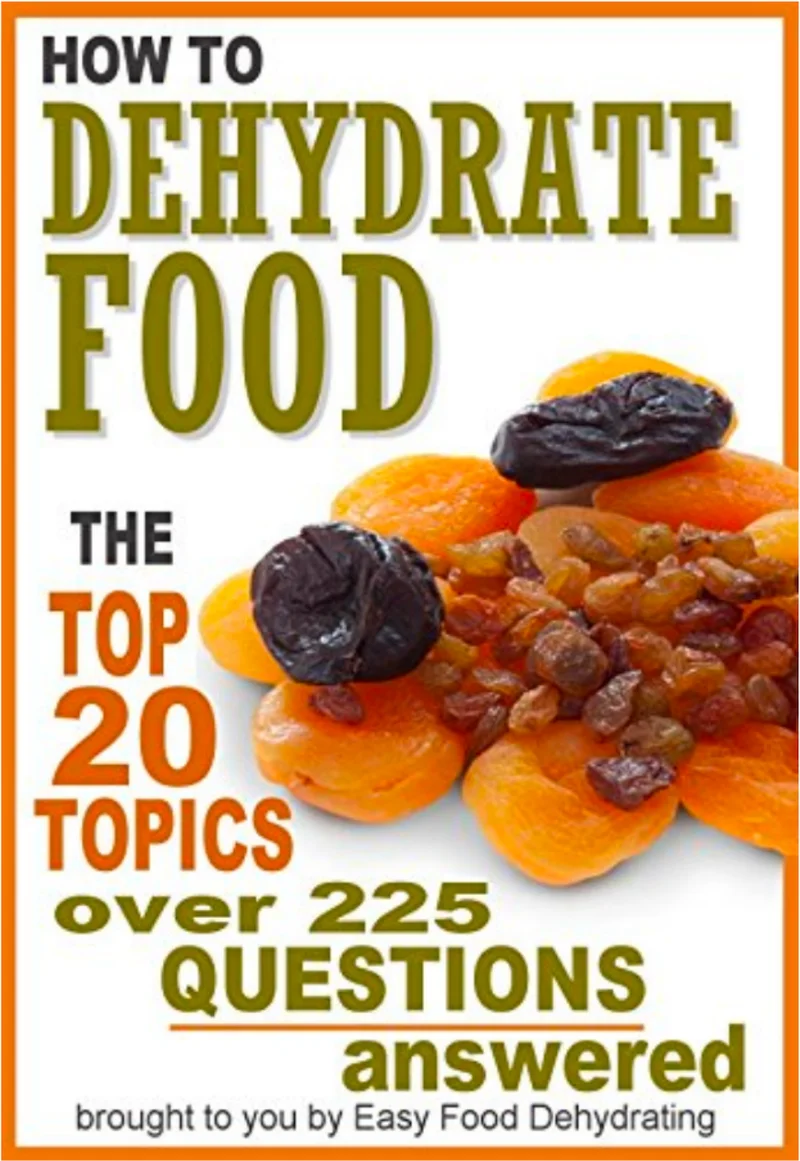What We Mean by “Dehydrate”
Here at Easy Food Dehydrating, “dehydrate” always means using an electric food dehydrator — the easy, reliable way to dry food at home.
- Home
- Articles On How To Dehydrate Food Safely
- Does Dehydrating Food Destroy Nutrients?
Does Dehydrating Food Destroy Nutrients?
Here's the Answer

Do You Lose Nutrients When Dehydrating Food?
Does dehydrating food destroy nutrients? It’s a great question and according to this post from the University of Missouri, Vitamins A and C can be destroyed by heat and air when dehydrating food.
✅ Quick Answer: Does dehydrating food destroy nutrients?
Yes, dehydrating can reduce some heat- and air-sensitive nutrients like Vitamin C and Vitamin A. But most minerals, fiber, and calories remain intact—and using lower temps and careful prep helps preserve even more.
But let's not forget this: heating food by baking, boiling, broiling, and grilling ALSO destroys nutrients! Only by eating raw fruits and vegetables do we get to enjoy their full nutritional value.
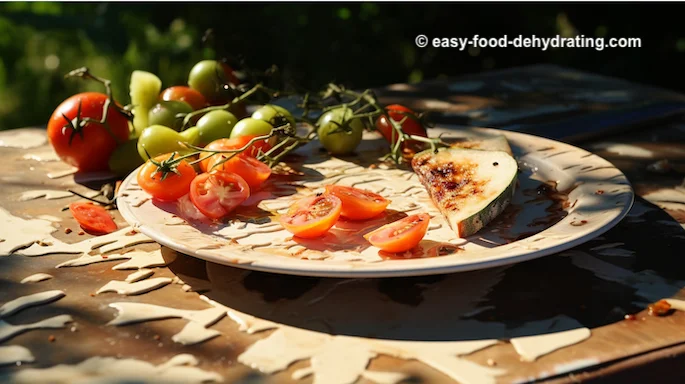
Which Nutrients Are Lost During Dehydration?
The loss of Vitamins A and C through heat and air is a bit of a bummer because using heat and air is the primary way of dehydrating food!
This vitamin loss is easily rectified by taking a daily vitamin supplement (or eat raw foods!)
How to Retain More Nutrients While Dehydrating
But… the lower the temperature you dry vegetables at, the more nutrients they retain. That makes sense, right?
Fruits and vegetables are dehydrated between 125°F and 135°F (or per your food dehydrator's instructions).
My one exception are Mushrooms. They are dehydrated at 90°F for Excalibur dehydrators, and 95°F for Nesco dehydrators - for two to three hours THEN set the temperature to 125°F and dry for the remaining time.
💡 Tip: Outside the U.S.? Most dehydrating temps here are listed in Fahrenheit - use our quick converter to see the Celsius equivalent for your machine.
Does Blanching Deplete Vitamins Before Dehydrating?
When dehydrating certain vegetables, we need to blanch them. Read how and why here.
Blanching will also result in a loss of Vitamin C, B-Complex—and water-soluble minerals. Again, taking a daily vitamin supplement will more than make up for the vitamin and mineral loss.
For those of us who are rightly concerned with our sugar intake, please bear in mind that dehydrating fruit (that are high in natural sugars) will result in an even higher sugar concentration after dehydrating!
Why is that? Keep reading!
Why Does Dried Fruit Seem So Sweet?
When you remove the water from sugar-laden foods, you're left with an even more condensed version of that food, sugar-wise. Read our post on The Pros and Cons of Dried Fruit which goes into details of dried fruit and its sugar content.
When we dehydrate food, we remove the water that’s inside our fruits (and vegetables) in an attempt to kill micro-organisms so the food won’t spoil as quickly (like they do when fresh). In an effort to also combat food spoilage, we use oxygen absorbers and desiccant packets.
Watch Out: Portion Creep After Dehydrating Fruit
Let's get back to the sugar content in fruit: What we are left with after dehydrating is the fruit minus water. Fruit shrinks.
So what? you’re thinking...
When our fruit shrinks after dehydrating, it means there’s a strong chance that we’ll want to eat more of it (due to it being smaller)—and that’s where portion control for dried fruit especially—has to come into play.
Now then, if only dehydration would take out the sugar too, we’d all be a lot healthier.
Why Dehydrating Is Still Worth It — Nutrients or Not
Don’t allow the loss of some vitamins to deter you from dehydrating food. What we are trying to achieve is having enough food in your pantry.
When the “stuff” hits the fan, there’s nothing worse than rushing out to your grocery store to stock up, only to be greeted by empty shelves. Get ahead of the game by keeping your food pantry full, whatever the reason or season (as my website slogan says).
Did you know, when natural disasters hit (earthquakes, hurricanes, etc.) the average family has only enough food in their refrigerator and pantry to last for 3 days... that's only nine meals? Don't let this happen to your family.
How to Preserve Nutrients with Proper Storage
The job of an oxygen absorber is to inhibit mold growth.
After our foods have been dehydrated, they are ready to be vacuum-sealed and then stored in Mason jars (shown below the oxygen absorber info.) or in food vacuum-sealer bags for daily use or long-term storage.
Oxygen Absorbers: Do They Really Help?
When to Use 50cc Oxygen Absorbers
50cc are perfect for small jars and containers. Ideal for keeping spices and smaller dried foods fresh.
Best Uses for 100cc Oxygen Absorbers
100cc are great for quart-sized jars and vacuum-sealer bags. The most versatile size for everyday use.
- PackFreshUSA Oxygen Absorbers
- 200-Pack
- Food-Grade, Non-Toxic
- Oxy-Sorb Oxygen Absorbers
- 100-Pack
- Long-Term Food Storage Freshness Protection
- Oxy-Sorb Oxygen Absorbers
- Bags of 20 (60 Count total)
- Super Effective for Dried Goods
- Oxy-Sorb Oxygen Absorbers
- Pack of 10
- I use these for airtight bins and buckets
As an Amazon Associate, I earn from qualifying purchases — this does not affect the price you pay. Read full disclosure.
Best Storage Jars for Dried Foods
Mason Jars at Amazon
Mason Jars Regular Mouth Quart Jars
- Ball brand regular mouth Glass Mason Jars. Quart size (32oz)
- Package of 12
Mason Jars Wide Mouth Pint Jars
- Ball brand wide mouth Glass Mason Jars. Pint size (16oz)
- Package of 12
Mason Jars Wide Mouth Half Pint Jars
- Ball brand wide mouth Glass Mason Jars. Half-Pint (8oz)
- Package of 12
Kerr Wide Mouth Half-Pint Mason Jars
- Kerr brand wide mouth Mason jars with lids and bands
- Half pint (8oz)
- Package of 12
As an Amazon Associate, I earn from qualifying purchases — this does not affect the price you pay. Read full disclosure.
Use Desiccant Packets Too!
In addition to using oxygen absorbers, you might want to add a desiccant packet, too. Read all about desiccant packets here and what size to use!
Get Our Free Dehydrating Starter Guide
Get our free eBook and learn the quick Six Simple Steps on how to safely dehydrate fresh fruits 'n' veggies (and cooked meats). Not only that, you need to know how to safely store it too!
Opt-in today by clicking the red "Six Simple Steps" link above. The free eBook covers the six necessary steps you need to know to dehydrate food safely at home.
🌿 Free Herb Drying Guide – Grab It While You’re Here
While you're picking up the Six Simple Steps freebie, why not pick up a free copy of our How to Grow and Dehydrate Herbs too? Just click the link to visit the download page.
You'll learn how to dehydrate the top six popular herbs
- basil
- oregano
- thyme
- rosemary
- sage
- lavender
and how to make herb-infused oils,
too. Perfect for gift-giving!
Common Questions About Nutrients and Dehydrated Food
Does dehydrating food remove all nutrients?
Does dehydrating food remove all nutrients?
Not at all. While some vitamins like A and C may degrade with heat and air, most minerals, fiber, and macronutrients (like protein and carbs) remain intact during dehydration.
Can I reduce nutrient loss when dehydrating?
Can I reduce nutrient loss when dehydrating?
Yes! Use lower temps when possible, avoid over-blanching, and store dried food in airtight containers with oxygen absorbers to prevent further degradation.
Is dehydrated food still healthy?
Is dehydrated food still healthy?
Absolutely. Dehydrated fruits, veggies, and meats are shelf-stable, additive-free, and retain their fiber and calorie content. Supplementing with a multivitamin covers any minor loss.
Does blanching before dehydrating destroy vitamins?
Does blanching before dehydrating destroy vitamins?
Blanching helps with texture and color—but it does reduce water-soluble vitamins like B-complex and C. Blanch only when necessary, and keep it short.
What about sugar in dried fruits?
What about sugar in dried fruits?
Dehydrating fruit concentrates the sugar, since the water is removed. That’s why dried fruit tastes sweeter and is easier to overeat—portion control is key.
While it’s true that some nutrients—especially Vitamin C—can be lost in the dehydrating process, you’re still left with healthy, preservative-free food that stores well and tastes great. Don’t let a little vitamin loss stop you from building a pantry full of ready-to-go meals and snacks.
And while you’re here, don’t forget to grab your free 5 Dried Food Recipes You’ll Actually Love PDF (below) featuring carrot soup, minestrone soup, split pea soup, spicy beef jerky, and banana cinnamon rolls. They’re delicious, simple, and dehydrator-friendly.
Get 5 Dried Food Recipes You'll Actually Love
Here's where you can get your copy of our all new
5 Dried Food Recipes (That Actually Taste Great)
They're my all-time favorite easy dried food meals!
Get it here right now.
For Free!
Before You Go...
If you enjoyed this page, tap the ❤️ in the lower right-hand corner.
It saves this page to your Grow bookmarks so you can find it again later.
You’ll also see quick share buttons to copy the link, post to Facebook,
or save it straight to Pinterest.
